Central America
IFRC warns of growing health barriers for migrants in the Americas
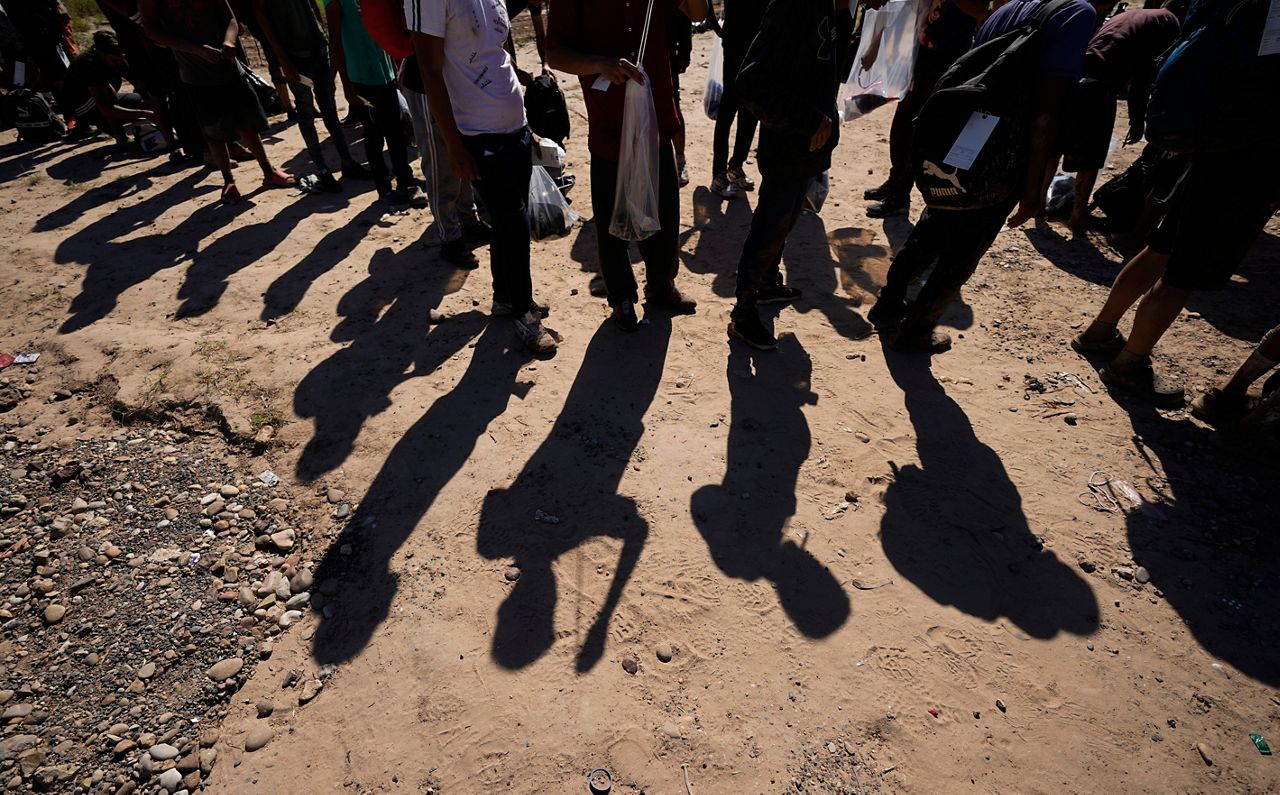
The International Federation of Red Cross and Red Crescent Societies (IFRC) issued a warning on Tuesday about the urgent health needs faced by migrants in the Americas, who “must overcome increasing barriers” and suffer from a “lack of comprehensive healthcare” in both transit and destination countries.
“The insufficiency of healthcare services and the barriers to access are putting lives at risk, exacerbating health inequalities, and putting immense pressure on already fragile national health systems,” the IFRC stated in a release marking the publication of the report Migration and Health in the Americas: Needs and Services Assessment.
The report, which compiles data from 2021 to 2023, indicates that in the case of migrants in transit, “between 60% and 70% require healthcare, with general medical services being the most needed,” while in destination countries, “up to 74% require healthcare services, such as maternal and pediatric care, treatment for chronic diseases, mental health services, and specialized care.”
Pedro Porriño, IFRC’s Emergency Health Coordinator for the Americas, emphasized that “access to healthcare is a fundamental human right, and the barriers migrants face—whether due to their irregular status, lack of documentation, or fear of deportation—must be dismantled.”
“It is essential to provide comprehensive healthcare that addresses their needs, from basic medical care to specialized treatments for chronic conditions, mental health support, and services for people with disabilities,” Porriño added.
The IFRC highlighted that in Panama, a country that experiences a steady flow of migrants crossing the dangerous Darién jungle, the Red Cross has provided nearly 750,000 services over the past six years, mostly to migrants needing first aid, general medicine, mental health support, access to clean water, vaccinations, and sexual and reproductive health care.
“Addressing the health needs of migrants should be a priority, and recognizing the role of local Red Cross teams in providing assistance, protection, and dignity is an opportunity for governments and donors to ensure migrants’ right to health,” said Martha Keays, IFRC Regional Director for the Americas.
Central America
Bukele warns crime can become a ‘parallel government’ during visit to Costa Rica
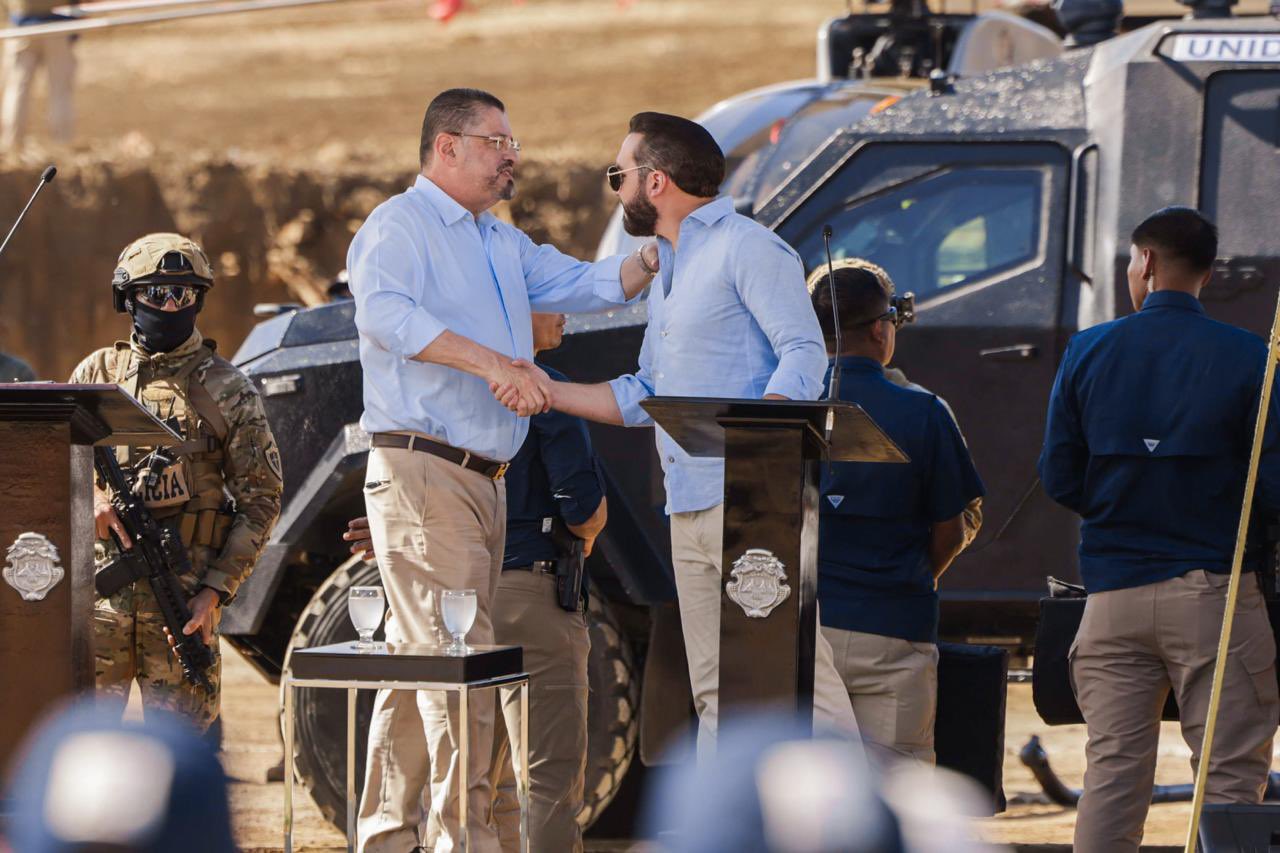
El Salvador’s President Nayib Bukele, accompanied by his official delegation, arrived at the site where the new facilities of the Center for the High Containment of Organized Crime (CACCO) are being built. Costa Rican President Rodrigo Chaves welcomed Bukele, marking the start of the cornerstone-laying ceremony.
“Thank you very much to President Rodrigo Chaves and his cabinet for this invitation,” Bukele said, noting that this was his fourth meeting with the Costa Rican leader in the past two years.
In his address, Bukele stressed that insecurity is a problem that undermines all aspects of society. “When insecurity advances, jobs collapse, education becomes more difficult, and the economy slows down. People stop going out, businesses close early, investment leaves, and tourism disappears,” he said.
The Salvadoran president warned that if crime continues to grow, it can turn into a parallel government—“the dictatorship of gangs, criminals, and drug traffickers.” He added that this situation has not yet occurred in Costa Rica and that the country is still in time to prevent it.
Central America
U.S. and El Salvador maintain close partnership, embassy says
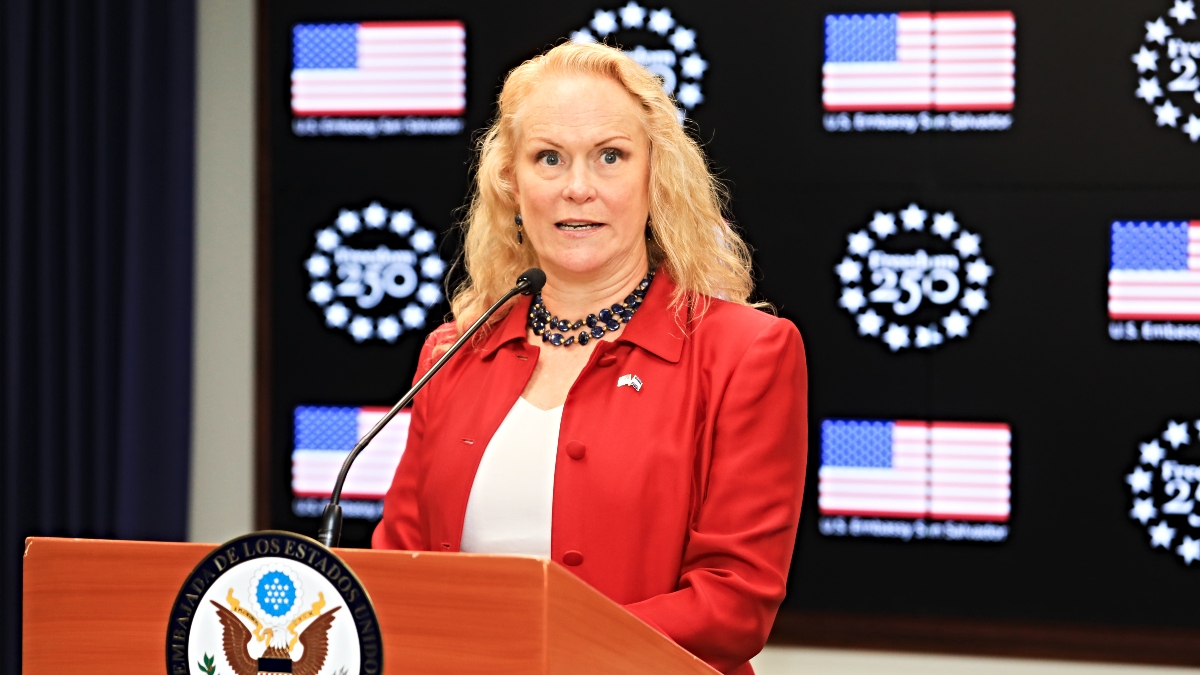
The Chargé d’Affaires of the United States Embassy in El Salvador, Naomi Fellows, said on Monday that relations between the two countries remain “very close” and that both governments continue to work together in several areas of shared interest.
Speaking at a press conference, Fellows highlighted the longstanding friendship between the United States and El Salvador, as well as the achievements reached through bilateral agreements.
“In terms of our relationship with El Salvador, it continues to be very strong, very close. We are partners on security issues, on economic development; partners on migration, and on many other matters,” she said.
Fellows added that the relationship remains solid and is expected to continue strengthening through joint actions and cooperation initiatives.
On security, she noted that the administration of U.S. President Donald Trump has underscored the results of the measures implemented by the government of President Nayib Bukele to improve public safety in the country.
Senior U.S. officials have visited El Salvador to observe firsthand the impact of the Territorial Control Plan, including tours of the Terrorism Confinement Center (CECOT).
Fellows also emphasized the strong personal ties between the two nations, pointing to family and friendship connections that link Salvadorans and Americans.
Central America
Taiwan’s $10 million donation after 2001 earthquakes allegedly diverted in El Salvador
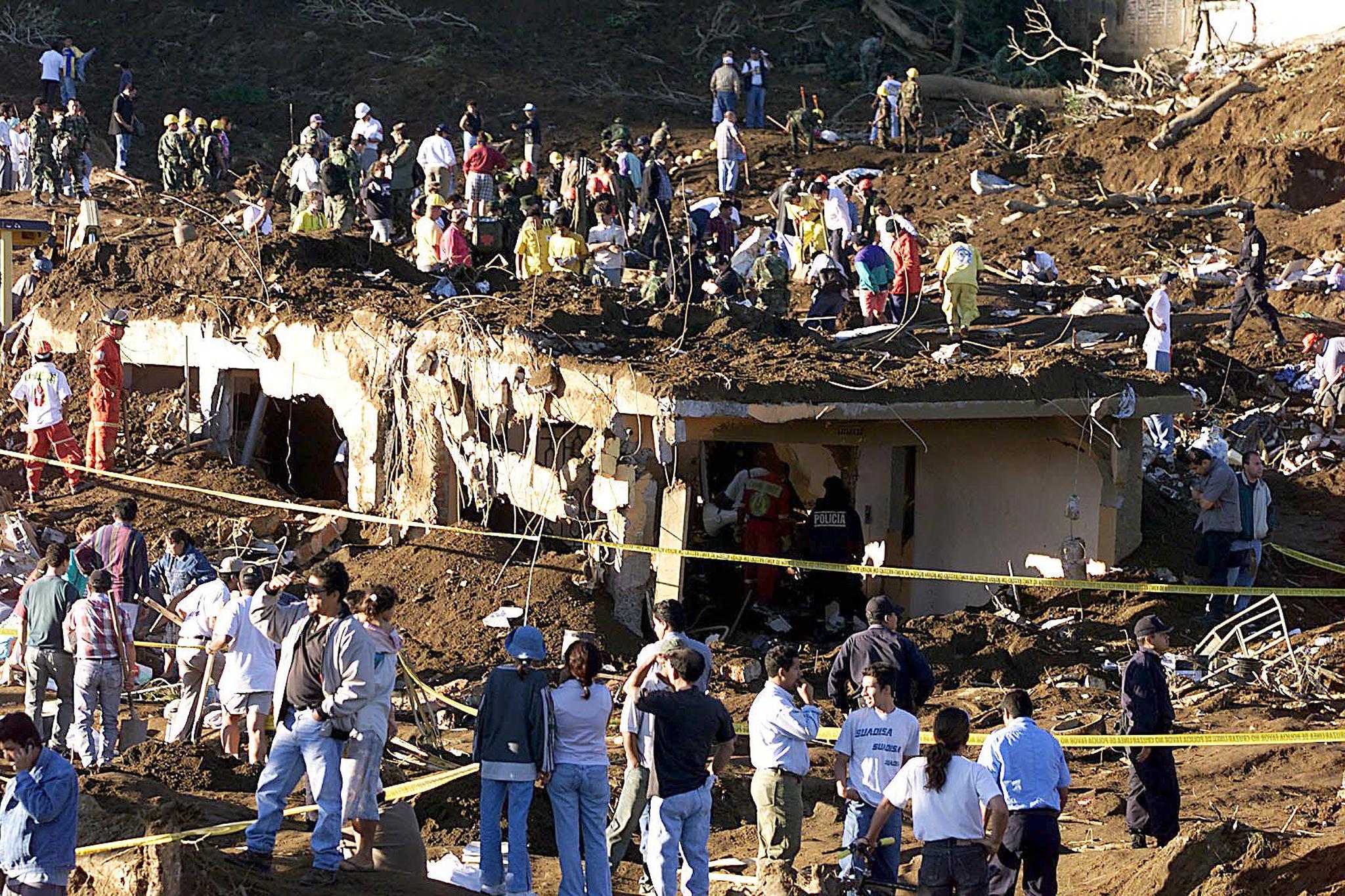
Amid the national tragedy left by the earthquakes of January 13 and February 13, 2001, a controversial corruption scandal emerged that later implicated former presidents Francisco Flores and Elías Antonio Saca, as well as senior executives of the ARENA party.
Although there were efforts to conceal a scheme involving the misuse of public funds, subsequent investigations revealed that between October 2003 and April 2004 the government of Taiwan, led at the time by President Chen Shui-bian, delivered at least three checks totaling $10 million in donations to El Salvador. The funds were diverted and never recorded by the Technical Secretariat for External Financing, the government body responsible for coordinating and monitoring international cooperation resources.
The plight of more than 1.5 million earthquake victims prompted an outpouring of international solidarity. However, it also fueled ambitions among sectors that allegedly took advantage of the emergency to improperly appropriate resources intended to ease the suffering of those affected.
Part of the $10 million donation was earmarked for the construction of housing for residents of Las Colinas, one of the communities hardest hit by the 7.7-magnitude earthquake that struck on January 13, 2001, at 11:35 a.m. Plans also included the creation of a memorial park to honor the 525 victims buried by landslides.
At a press conference in January 2014, Alejandro Flores, president of the Las Colinas community board, stated that residents received some assistance from Taiwanese cooperation funds. However, he clarified that this support came from different resources and that the destination of the $10 million donation was never known to them.
-

 International5 days ago
International5 days agoDeadly van accident near Brazil border leaves 11 dead in Bolivia
-

 Central America5 days ago
Central America5 days agoU.S. and El Salvador maintain close partnership, embassy says
-

 International5 days ago
International5 days agoU.S. to host Danish and Greenlandic Foreign Ministers at the White House
-
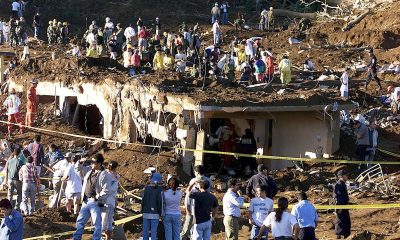
 Central America5 days ago
Central America5 days agoTaiwan’s $10 million donation after 2001 earthquakes allegedly diverted in El Salvador
-
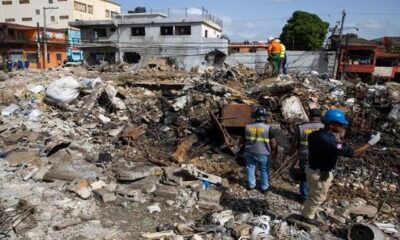
 International5 days ago
International5 days agoDominican court postpones hearing in deadly nightclub collapse case
-

 International5 days ago
International5 days agoPolice hunt gunmen after fatal shooting in Corsica
-
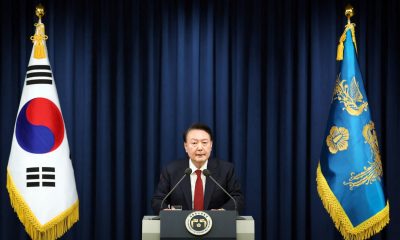
 International5 days ago
International5 days agoEx-President accused of bid to establish dictatorship as verdict nears in South Korea
-

 International5 days ago
International5 days agoVenezuelan opposition leader dedicates Nobel Prize to Trump
-
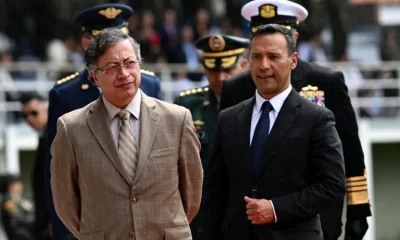
 International4 days ago
International4 days agoColombian Defense Chief Meets U.S. Officials to Advance Bilateral Narcotics Strategy
-

 International3 days ago
International3 days agoUkraine declares nationwide energy emergency amid russian attacks and extreme cold
-

 Central America3 days ago
Central America3 days agoBukele warns crime can become a ‘parallel government’ during visit to Costa Rica
-

 International3 days ago
International3 days agoIran closes airspace amid U.S. threats and deadly nationwide protests
-

 International3 days ago
International3 days agoX moves to block Grok from creating sexualized images of real people amid legal scrutiny
-

 International3 days ago
International3 days agoHillary Clinton skips Epstein inquiry as house panel threatens contempt charges
-

 International3 days ago
International3 days agoFrance joins Denmark’s ‘Operation Arctic Resistance’ in Greenland amid U.S. tensions
-

 International3 days ago
International3 days agoU.S.–Denmark tensions escalate as Trump pushes NATO to back U.S. claim on Greenland
-

 International3 days ago
International3 days agoUK Intelligence estimates russian casualties in Ukraine at over 1.2 million
-
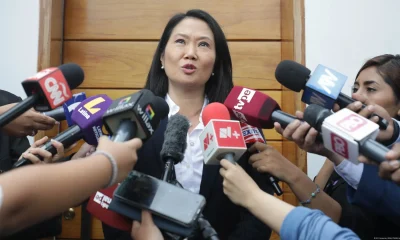
 International4 days ago
International4 days agoPeruvian Court Orders Definitive Dismissal of Money Laundering Case Against Keiko Fujimori
-
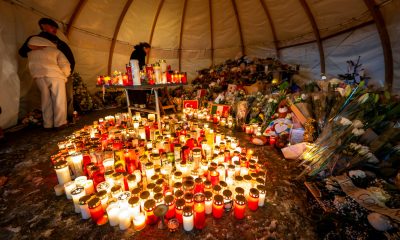
 International3 days ago
International3 days agoSwiss Canton of Valais Grants Emergency Aid to Victims of Crans-Montana Bar Tragedy
-

 International17 hours ago
International17 hours agoU.S. deportation flight returns venezuelans to Caracas after Maduro’s ouster
-

 International3 days ago
International3 days agoU.S. to suspend visa processing for applicants from 75 countries
-
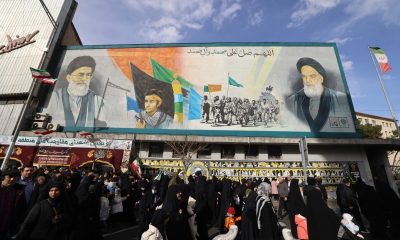
 International1 day ago
International1 day agoCanada accuses Iran of killing its citizen during anti-government unrest
-

 International1 day ago
International1 day agoSheinbaum highlights anti-drug gains after U.S. says challenges remain
-

 International17 hours ago
International17 hours agoFormer South Korean President Yoon sentenced to five years in prison


























